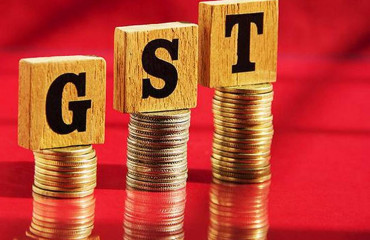
The Reserve Bank of India (RBI) made two big announcements on 19 May. It announced a threshold exemption limit of ₹7 lakh for applicability of TCS @ 20% in respect of international credit card spends. Secondly, it announced withdrawal of ₹2,000 notes from circulation. RBI has advised the public to deposit their ₹2,000 notes into their bank accounts and/or exchange them into bank notes of other smaller denominations at any bank branch until 30 September. The exchange limit has been restricted to ₹20,000 at a time.
The Reserve Bank of India (RBI) made two big announcements on 19 May. It announced a threshold exemption limit of ₹7 lakh for applicability of TCS @ 20% in respect of international credit card spends. Secondly, it announced withdrawal of ₹2,000 notes from circulation. RBI has advised the public to deposit their ₹2,000 notes into their bank accounts and/or exchange them into bank notes of other smaller denominations at any bank branch until 30 September. The exchange limit has been restricted to ₹20,000 at a time.
The RBI announcement created a flurry and panic among the masses that Demonetization 2.0 has arrived. Demonetization 1.0 was announced on 8 November 2016, wherein the 'legal tender' (valid currency) status of ₹500 and ₹1,000 notes was discontinued with immediate effect, and a limited period window of until 30 December 2016 was given to deposit such notes in bank accounts.
However, this time, RBI in its press release, has categorically clarified that the exchange of ₹2,000 notes into smaller denominations is a part of the 'Clean Note' policy of RBI and is not demonetization. ₹2,000 notes will continue to remain legal tender even after September. With this backdrop, let us understand the tax implications of the cash deposits being made in banks in ₹2,000 denomination notes following the RBI's announcement on 19 May.
It is important to understand that in Demonetization 1.0, which came into effect from 8 November 2016 midnight, ₹500 and ₹1,000 notes were declared as invalid currency; therefore, any cash deposits in such notes in banks, beyond the specified limit of ₹250,000, attracted deeper scrutiny from income tax authorities. Under the special drive of 'Operation Clean Money', several thousands of income tax notices were issued to individuals and businesses, asking for the source of such cash deposits. The basic presumption was that any abnormal and disproportionate cash deposits, post demonetization, was nothing but the unaccounted money of such people.
For businesses, accepting such invalid notes for doing transactions, and booking of cash sales during post demonetization period, was not permissible, so they had to explain the source of such cash deposits as cash in hand as of 8 November 2016 only and not beyond that.
However, this time, the RBI's announcement is in respect of withdrawal of ₹2,000 notes from circulation only, and it is not regarding their demonetization. Unlike the ₹500 and ₹1,000 denominated notes in Demonetization 1.0, the ₹2000 notes will continue to remain legal and valid currency even after 30 September, as per the RBI's clarification.
Thus, this time, genuine cash deposits in ₹2,000 denominated notes in bank accounts can very well be explained either out of regular household savings, or out of earlier cash withdrawals, or out of cash gifts from blood relatives or as gifts received on marriage occasions, or as cash sales in case of proprietor and other businesses, subject to such claims, being supported by authentic documentary evidences.
Cash sales up to ₹2 lakh from a person in a single day are allowed as per Income Tax provisions. Post the RBI announcement, cash sales in ₹2,000 notes have risen sharply for all food delivery apps, petrol pumps, malls, grocery stores, hospitals, jewellery stores, etc.
Once the businessman establishes the genuineness of cash sales in ₹2000 notes, being done on or after 19 May and even after 30 September, with all supporting documents like sales invoices, bank statements, confirmations from buyers, GST returns, co-relation of such cash sales with purchases and stocks, etc., then the authenticity of making cash deposits out of such cash sales can't be disregarded and rejected by tax authorities, merely on account of variation in the ratio of cash sales in the current period with that of an earlier period. There can't be a fixed sales pattern in any business.
Also, once a businessman has offered his cash sales as his business income, then again taxing the cash deposits made out of his cash sales as unexplained cash credits amounts to double taxation, which is not permissible as per the canons of Income Tax Law.
So, even post the RBI announcement, those having valid and genuine explanation of sources of cash deposits of ₹2,000 notes need not panic and should go ahead with depositing their hard-earned money in their bank accounts, and should keep intact all supporting documentary evidences in corroboration of such cash deposits.
